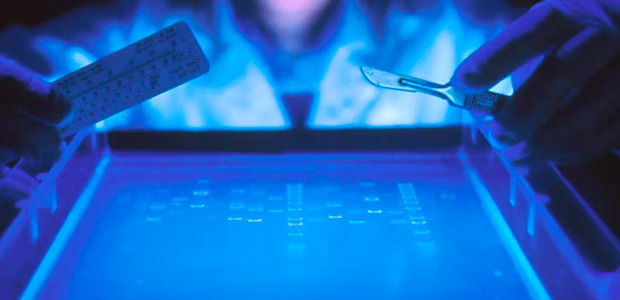
Correct coding ensures that the provider is reimbursed for the services provided, and it also provides accurate data for research and public health purposes.
In this article, we will discuss the CPT codes for genetic testing billing, including the basics of CPT codes, how they are used in genetic testing, and common codes used for different types of genetic tests.
Introduction
Genetic testing is the analysis of DNA, RNA, chromosomes, proteins, and other genetic materials to identify changes that may cause or contribute to disease. It has become an essential tool in medicine, enabling doctors to diagnose, treat, and prevent a wide range of health conditions. However, billing and coding for genetic testing can be challenging, especially with the increasing complexity of genetic tests and the various codes available to describe them.
What are CPT Codes?
Current Procedural Terminology (CPT) codes are five-digit codes assigned to medical procedures and services. They are used to describe medical, surgical, and diagnostic services, and are recognized by insurance companies, Medicare, and Medicaid. CPT codes are updated annually by the American Medical Association (AMA) to reflect changes in medical practice and technology.
Why are CPT Codes Important in Genetic Testing Billing?
CPT codes are essential for billing and reimbursement of medical services. They provide a standardized language for describing medical procedures and services, making it easier for insurance companies and government programs to process claims and determine reimbursement rates. Accurate coding also provides valuable data for research and public health purposes.
The CPT Codes Used in Genetic Testing Billing
There are several CPT codes used for genetic testing, depending on the type of test performed. The following are some of the most common codes used for genetic testing:
Molecular Pathology CPT Codes
Molecular pathology CPT codes are used for tests that detect changes in DNA or RNA sequences. These tests are used for diagnosing and monitoring cancer, infectious diseases, and genetic disorders. The following are some of the most commonly used molecular pathology CPT codes:
- 81200 – CYP2C19 (cytochrome P450, family 2, subfamily C, polypeptide 19) (eg, drug metabolism), gene analysis, common variants (eg, *2, *3, *4, *5, *6).
- 81401 – Molecular pathology procedure, Level 2 (eg, 2-10 SNPs, 1 methylated variant, or 1 somatic variant [typically using nonsequencing target methodology], or detection of a dynamic mutation disorder/triplet repeat).
- 81403 – Molecular pathology procedure, Level 4 (eg, analysis of single exon by DNA sequence analysis, analysis of <10 amplicons using multiplex PCR in a single reaction, mutation scanning or duplication/deletion variants of 1 or more exons, or characterization of a somatic mutation hotspot by DNA sequence analysis).
Microarray CPT Codes
Microarray CPT codes are used for tests that analyze multiple regions of the genome simultaneously. These tests are used for diagnosing and monitoring genetic disorders, such as autism, developmental delays, and intellectual disabilities. The following are some of the most commonly used microarray CPT codes:
- 81229 – Chromosome analysis; interrogation of genomic regions for copy number variants (eg, comparative genomic hybridization [CGH] microarray)
- 81405 – Molecular pathology procedure, Level 5 (eg, analysis of >50 exons in a single gene by DNA sequence analysis, mutation scanning or duplication/deletion variants of 2-5 genes [eg, spinal muscular atrophy], or characterization of a single exon by using multiplex PCR in a single reaction)
Next-generation Sequencing CPT Codes
Next-generation sequencing (NGS) CPT codes are used for tests that analyze DNA or RNA sequences on a large scale. These tests are used for diagnosing and monitoring cancer, genetic disorders, and infectious diseases. The following are some of the most commonly used NGS CPT codes:
- 81445 – Molecular pathology procedure, Level 6 (eg, analysis of >50 exons in a single gene by DNA sequence analysis, mutation scanning or duplication/deletion variants of 6-10 genes [eg, cystic fibrosis], sequence analysis of multiple genes simultaneously, maternal plasma DNA sequencing by high-throughput sequencing)
- 81479 – Unlisted molecular pathology procedure
Other Genetic Testing CPT Codes
Other genetic testing CPT codes include:
- 81235 – BRAF (v-raf murine sarcoma viral oncogene homolog B1), gene analysis, V600E variant
- 81479 – Unlisted molecular pathology procedure
How to Select the Appropriate CPT Code for Genetic Testing
Selecting the appropriate CPT code for genetic testing requires knowledge of the type of test performed, the level of complexity, and the purpose of the test. Medical professionals should review the CPT code descriptions carefully and choose the most specific code that accurately describes the test performed.
Common Coding Mistakes to Avoid
Common coding mistakes for genetic testing include:
- Using an incorrect or outdated CPT code
- Using an unlisted CPT code when a specific code exists
- Failing to document the medical necessity of the test
- Failing to document the results of the test
- Failing to obtain prior authorization when required by the payer
The Importance of Accurate Coding
Accurate coding for genetic testing is essential for proper billing and reimbursement, as well as for research and public health purposes. Medical professionals should take care to select the appropriate CPT code for each genetic test performed and ensure that all documentation supports the medical necessity of the test and the results obtained.
Conclusion
CPT codes are essential for billing and reimbursement of genetic testing services. Medical professionals should be familiar with the different CPT codes available for genetic testing and take care to select the appropriate code for each test performed. Accurate coding ensures that providers are reimbursed for their services and provides valuable data for research and public health purposes.
Genetic Testing CPT Code FAQs
- What is a CPT code?
A CPT code is a five-digit code used to describe medical procedures and services for billing and reimbursement purposes. - Why are CPT codes important in genetic testing?
They are important in genetic testing because they provide a standardized language for describing medical procedures and services, making it easier for insurance companies and government programs to process claims and determine reimbursement. - Are there different CPT codes for different types of genetic tests?
Yes, there are different codes for different types of genetic tests, including molecular tests, chromosomal tests, and microarray tests. - What should medical professionals do if they are unsure which CPT code to use for a genetic test?
Medical professionals should consult with a coding specialist or review the CPT descriptions carefully to ensure they are using the most specific code that accurately describes the test performed. - What happens if an incorrect CPT code is used for genetic testing?
If an incorrect code is used for genetic testing, it can result in denied claims or incorrect reimbursement amounts. It is important to select the appropriate code for each test performed to avoid these issues.
